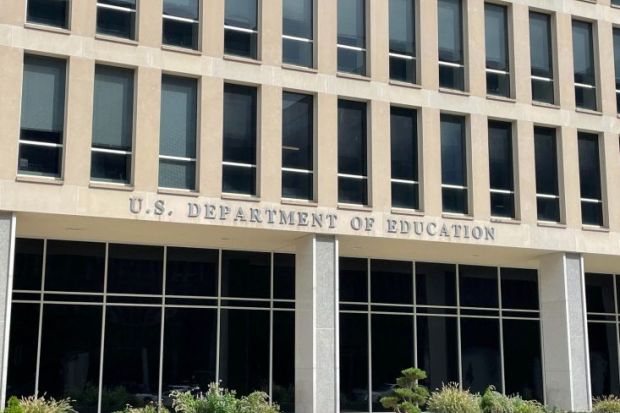A US federal judge has rejected another Biden administration effort to crack down on for-profit colleges, temporarily blocking a new rule that would end loan eligibility once a student has accumulated enough credits in their field of study.
The regulatory provision, the Bare Minimum Rule, is part of a regulatory overhaul due to take effect next month known as gainful employment that is designed to ensure that for-profit institutions and non-degree programmes lead students into worthwhile jobs.
The federal judge, Mark Pittman in Texas, agreed in a case brought by for-profit institutions that the Bare Minimum Rule should be suspended while the court determines its constitutionality, given the large degree of change from current practice that it represents.
Mr Pittman is a Trump administration appointee who invalidated a major Biden administration loan forgiveness initiative in 2022, and is part of a federal judiciary district with a history of rulings friendly to conservative causes.
The gainful employment concept goes back decades, and was revived by the Obama administration, before being pushed aside by court rulings and by the Trump administration. The Biden version would establish for the affected institutions a two-part test to keep themselves eligible for federal student aid: that their graduates both can afford their student loans, and are making more money than those who didn’t attend college.
As part of that regulatory rewrite, the Bare Minimum Rule provision generally would cut off federal aid to students at such institutions once they have met the minimum requirements for their degree or programme. Current law lets that aid flow until the student reaches 150 per cent of that minimum requirement.
The case challenging the provision was brought by a non-profit association of profit-institutions calling itself the Coalition for Career Schools, and by the Cortiva Institute, a chain of massage therapy schools.
In agreeing to suspend the Bare Minimum Rule, Mr Pittman suggests that the complaining institutions might not have a strong claim of damages but still deserve protections while that question is adjudicated in the courts. “Even if the magnitude of the schools’ harm is debatable, the irreparability of that harm is not,” he writes in the 15-page order.
The nation’s main association for the for-profit sector, Career Education Colleges and Universities, celebrated Mr Pittman’s ruling as part of a series of judicial victories, including his earlier ruling against student loan forgiveness, and a ruling earlier this year by a panel of three Republican-appointed judges in his district who rejected regulations giving loan relief to students defrauded by low-quality for-profit colleges.
In the case of the Bare Minimum Rule, said Jason Altmire, the president and chief executive of Career Education Colleges and Universities, the extended student eligibility for federal aid works to provide “additional value to a student’s education and make them more competitive in the job market”.
“Stronger programmes include a full scope of educational opportunities that increase students’ aptitude and opportunity to rise up the ranks in their profession and offer the highest quality service to their customers and employers,” said Dr Altmire, a former Democratic member of the US Congress from Pennsylvania.
Register to continue
Why register?
- Registration is free and only takes a moment
- Once registered, you can read 3 articles a month
- Sign up for our newsletter
Subscribe
Or subscribe for unlimited access to:
- Unlimited access to news, views, insights & reviews
- Digital editions
- Digital access to THE’s university and college rankings analysis
Already registered or a current subscriber? Login








